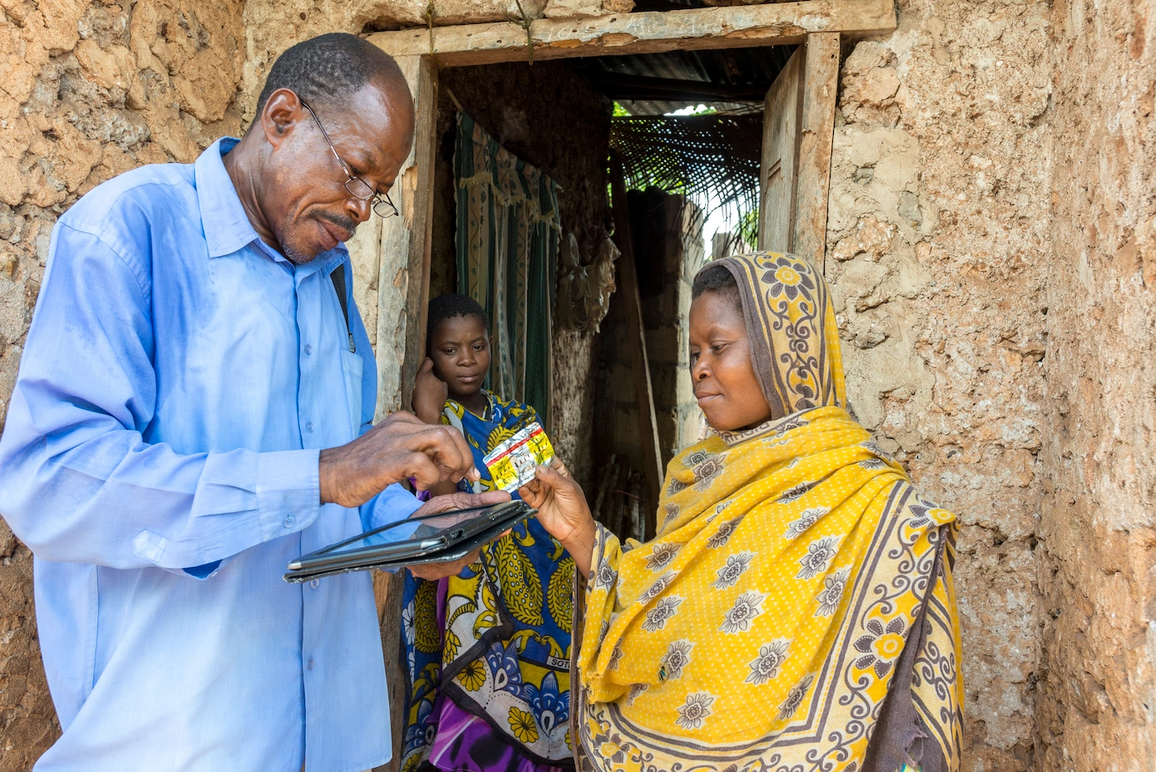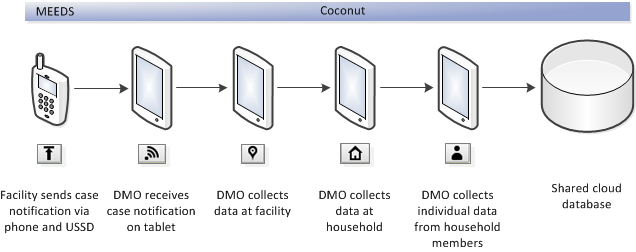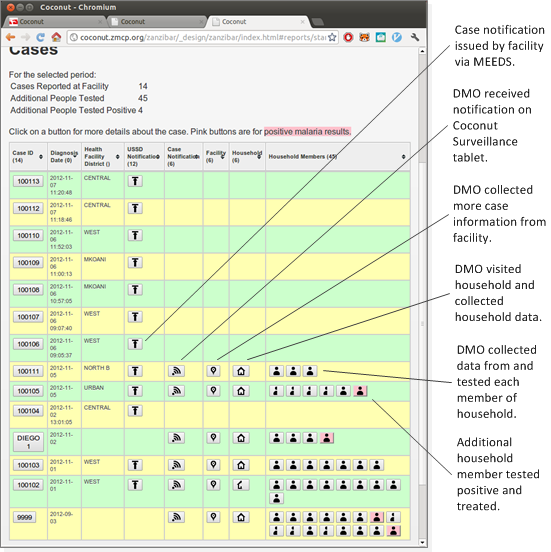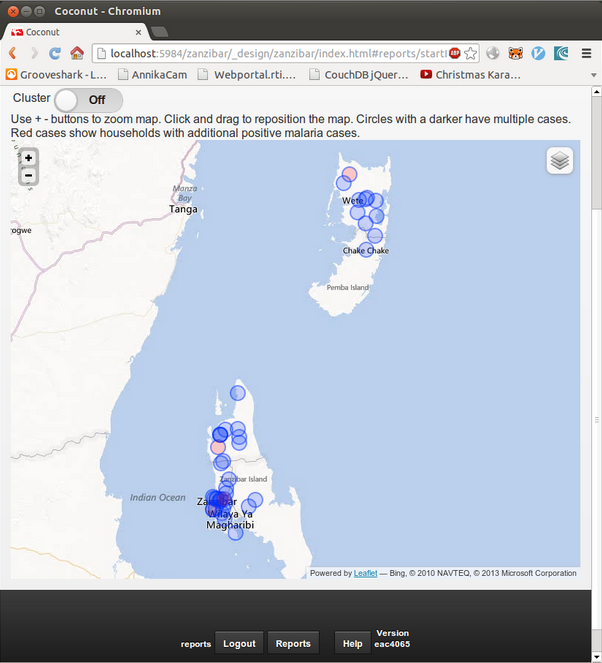Malaria Surveillance

In Zanzibar, the prevalence of Malaria is now at 1%. Global health technologies have helped Zanzibar to accomplish this goal. However, constant traffic with mainland Tanzania and foreign countries continues to pose a risk of outbreaks. The challenge is to detect them and to respond quickly to contain them.
Solution
RTI International, working closely with the Zanzibar Malaria Elimination Program (ZAMEP), developed Coconut Surveillance, a mobile application that builds on the Malaria Early Epidemic Detection System (MEEDS) that has helped to contribute to Zanzibar’s fight against Malaria. MEEDS is currently used by all of Zanzibar’s 150 health facilities. Since January 2013, the integrated MEEDS/Coconut Surveillance system has been used to follow-up more than 5,132 malaria cases to the household level. At the household, rapid diagnostic tests (RDTs) have been administered to and data collected from 22,350 household members, and 1,328 (6%) new cases have been diagnosed and treated.
Notifications of new cases are issued by facilities using MEEDS. Each District Surveillance Malaria Officer (DMSO) is equipped with a tablet computer running Coconut Surveillance. Once a DMO is alerted of a Malaria case via MEEDS, he or she is guided through an active case response protocol by Coconut Surveillance. Additional case data are entered into the tablet at the facility and the household. Coconut Surveillance uses the GPS capability of the tablet to automatically record the location of the household. Each household member is tested, and new cases are treated immediately.

How it Works
All of the health information collected from the household interview and testing is synced and aggregated in the cloud. Coconut Surveillance performs basic analysis on malaria incidence rates based by age, number of individuals who report using their malaria nets the night prior, etc. This analysis is essential for officials for understanding the success of public health campaigns for malaria reduction.

Coconut enables the efficient development of mobile data collection and management by storing data locally on any device and synchronizing data with a remote server when a network connection is available.
Coconut Surveillance also features a tool for mapping malaria outbreaks by region. The data can be clustered or individually mapped (as shown). Furthermore, users can zoom in to look at each outbreak and check health worker response/additional malaria cases uncovered.

MEEDS and Coconut Surveillance are helping Zanzibar to identify and treat many otherwise undiagnosed malaria cases, identifying hot spots and transmission patterns, and responding rapidly to new outbreaks.
These mHealth applications are helping Zanzibar to sustain the remarkable gains it has made against this dangerous and debilitating disease.
Partners
MEEDS and Coconut Surveillance have been developed in close collaboration with the Zanzibar Malaria Elimination Program, the U.S. Agency for International Development (USAID), and the U.S. Centers for Disease Control and Prevention (CDC).
Articles and Publications
- Zanzibar's Malaria Hunter, an online photo and video story
- Tanzania leading the way in the fight against malaria, a video story from CCTV Africa
- Coconut Suveilance, Real-time Surveillance and Response for Malaria Elimination, published February 11, 2016
- Surveillance Systems to Facilitate Malaria Elimination, Background Paper, Prepared for the Bill & Melinda Gates Foundation, January 2014, UCSF Global Health Sciences, Global Health Group
- Using Mobile Technology to Help Eliminate Malaria in Zanzibar
- Surveillance of Malaria in Zanzibar: First Responders Make All the Difference, a photo story published June 17, 2014, on exposure.co
- Use of Technology in Malaria Prevention and Control Activities, a USAID Impact Blog posting published May 3, 2013.
- Zanzibar Malaria Prevalence now at 1 Percent, a video report by Salma Said, VoicesofAfrica mobile reporter in Zanzibar, Tanzania, from April 14, 2010, published to YouTube on June 11, 2013

